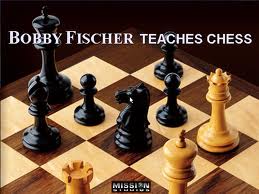TRADING POSITIONS TIP #8: ALWAYS PLAY THE GAME CORRECTLY!
 ALWAYS PLAY THE GAME CORRECTLY: Trade the stock market without any traces of ego or emotional attachments. Your primary objective over the long term is to build real wealth by becoming a savvy investor who manages their money wisely and consistently plays the game correctly.
ALWAYS PLAY THE GAME CORRECTLY: Trade the stock market without any traces of ego or emotional attachments. Your primary objective over the long term is to build real wealth by becoming a savvy investor who manages their money wisely and consistently plays the game correctly.
The reality of playing the stock market is that you won’t win every time you enter into a trade. In fact, the manner in which you handle your losses will determine your degree of success, as much as what you do when you win. As in any sport or serious endeavor, the path to mastery is not about making one great move. Instead, a savvy investor learns to master his or her ability to trade the stock market by taking consistent disciplined action based on accurate thinking and sound investment fundamentals.
Comment: Remember the master strategy for success at playing Wall Street Craps: Always play the game correctly by making only smart bets, at the optimal time, and in the appropriate amount. Do this consistently as well as manage your money wisely and “Know Thy Self” so that you can adjust your play according to your unique individual temperament.
**********
“Yes, risk-taking is inherently failure-prone. Otherwise, it would be called sure-thing-taking.”
Tim McMahon ~ Featured in Money Talks by Rosalie Maggio (1998)








 A Savvy Investing Take: A popular notion among most stock market investors is that success can be boiled down to a simple matter of deciding when to buy, when to sell, and when to hold a particular security. Of these three investing decisions, the matter of knowing when to “hold” your position in a particular stock is perhaps the least thoroughly examined.
A Savvy Investing Take: A popular notion among most stock market investors is that success can be boiled down to a simple matter of deciding when to buy, when to sell, and when to hold a particular security. Of these three investing decisions, the matter of knowing when to “hold” your position in a particular stock is perhaps the least thoroughly examined.